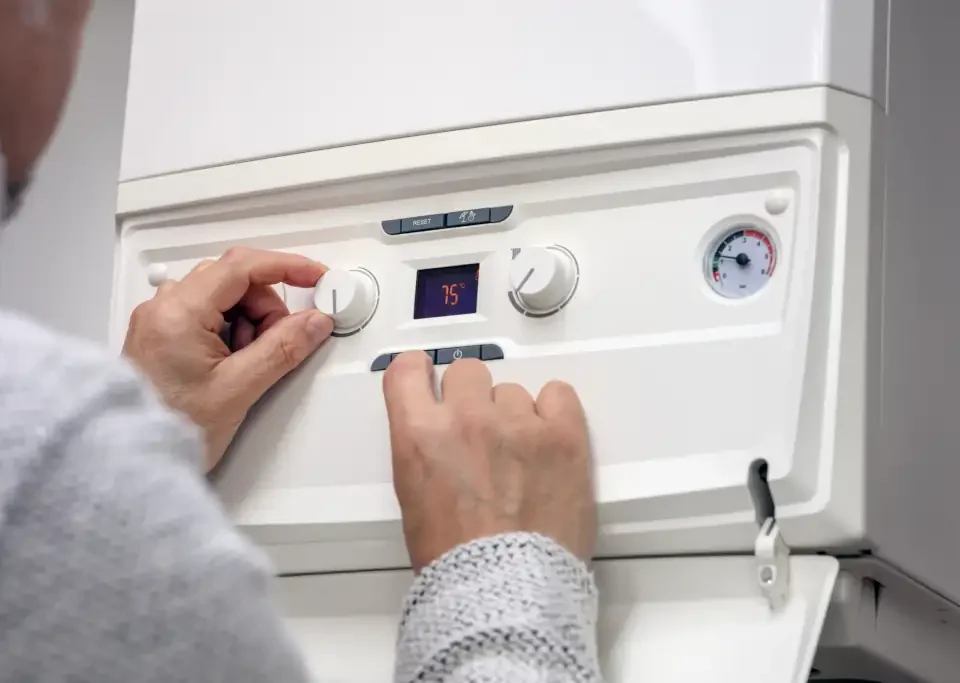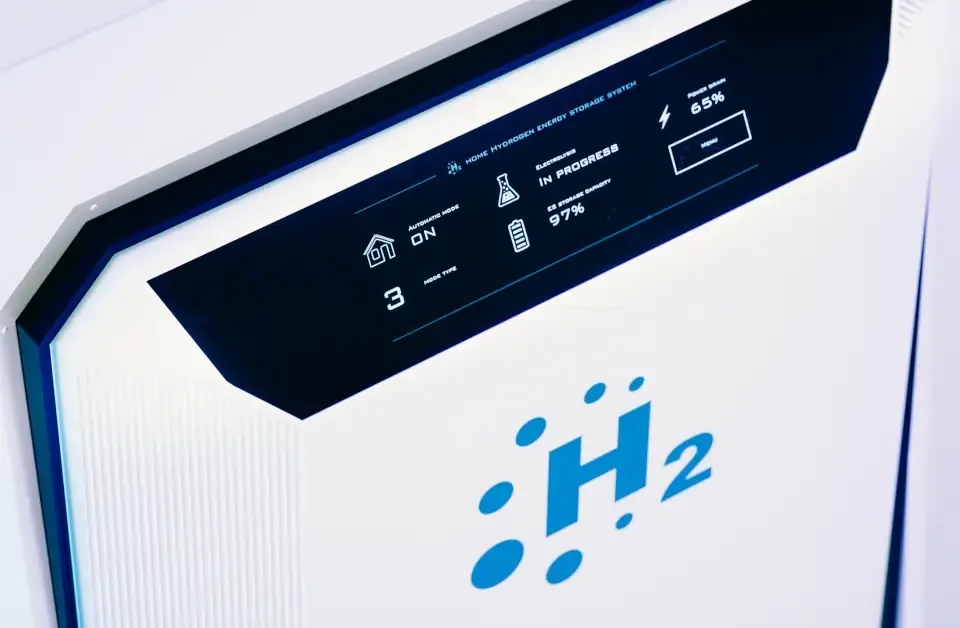- Your Complete Home Service Under One Roof
- 01395 571000
Oil vs Gas Boilers: What’s the Best Choice for Rural Properties?

When it comes to heating homes in rural areas, we often face a different set of challenges compared to properties in towns and cities. One of the biggest considerations is the lack of access to mains gas, which rules out a straightforward installation of a gas boiler in many cases. This leaves homeowners and landlords in rural communities weighing up the practicalities, costs and reliability of alternatives like oil boilers. Deciding between oil and gas isn’t just about fuel availability—it also comes down to long-term costs, efficiency, maintenance, and environmental impact.
From our experience working with rural clients, we’ve seen a clear shift in priorities over the past decade. People want reliability and warmth through the coldest months, but they’re also becoming more conscious about their energy bills and carbon footprint. That’s why we take a practical, informed approach when advising clients on whether to opt for oil or look at gas (where LPG or a gas connection is an option). Each system has its pros and cons, and what works best for one property might not be the right fit for another.
In this guide, we’ll share what we’ve learned through hands-on experience installing, servicing, and replacing both oil and gas boilers in rural homes. We’ll look at running costs, environmental concerns, maintenance demands, and what homeowners need to keep in mind when choosing a heating system that suits their lifestyle and location.
Fuel Availability: A Critical Starting Point
The first and most obvious factor is whether mains gas is even an option. In most rural areas, the answer is no. For homes not connected to the gas grid, oil becomes the go-to heating source. Oil is stored on-site in a dedicated tank, meaning you aren’t reliant on any external network. Deliveries can be arranged in advance, and with proper planning, you’ll never run out unexpectedly.
However, some rural homes may have access to liquefied petroleum gas (LPG), which is a viable alternative to natural gas. LPG can be stored in tanks, similar to oil, and used with gas boilers. If LPG is an option in your area, it’s worth exploring—but in many truly rural parts of the UK, oil remains more widely used and supported.
Running Costs: Oil vs Gas Boilers
Running costs are often at the top of every homeowner’s list of concerns. Oil prices can fluctuate significantly, depending on global markets and seasonal demand. However, in practice, many of our clients report that oil heating remains affordable, particularly when buying fuel in bulk during the warmer months when prices tend to be lower.
Gas, particularly natural gas, tends to be cheaper per kilowatt-hour compared to oil. But this only applies if you’re connected to the mains. LPG, on the other hand, is typically more expensive than both natural gas and oil, which can make it less attractive from a cost point of view over the long term.
Efficiency also plays a role here. Modern oil boilers are surprisingly efficient—some condensing models reach over 90% efficiency. Gas boilers tend to have a slight edge in efficiency overall, especially the newest A-rated models. But in practice, both systems can be economical if properly installed and maintained.
Installation and Upfront Costs
Installing an oil boiler can be more complex than a gas system, largely because of the oil storage tank. This tank must meet specific environmental standards and be located in a suitable area, typically away from drains and watercourses. The initial cost of setting up a tank, plus the boiler and associated pipework, can be higher than installing a gas boiler—particularly in a property that already has gas access.
However, in areas without mains gas, the cost of installing a gas system using LPG—including storage tanks and necessary safety measures—can quickly level out or even exceed oil boiler installation costs. From our experience, oil boiler installations often represent better value for rural clients, especially in older properties already set up for oil heating.
Environmental Considerations
Heating is one of the largest contributors to household carbon emissions. Neither oil nor LPG can be considered low-carbon, though gas does produce fewer emissions than oil when burned. From an environmental standpoint, gas boilers have a slight edge.
However, the UK government’s push toward low-carbon heating solutions—including heat pumps and hybrid systems—means that both oil and gas systems may face more scrutiny in the years to come. That said, modern condensing oil boilers are far cleaner and more efficient than older models, and options like biofuels are being explored as future alternatives.
We also make it a point to help clients understand how to improve energy efficiency in other areas—such as insulation, smart controls, and radiator upgrades—which can reduce overall consumption regardless of the boiler type.
Maintenance and Reliability
Both oil and gas boilers require annual servicing, but oil systems tend to need slightly more maintenance due to the nature of the fuel. Oil can leave behind soot and residue that needs regular cleaning, and filters and nozzles may need replacing more frequently.
However, we’ve found oil boilers to be very robust and long-lasting when well looked after. A properly maintained oil boiler can provide reliable service for 15 years or more. Spare parts are generally easy to source, and many of the UK’s rural heating engineers are well-trained in working with oil systems.
Gas boilers are often seen as more user-friendly and cleaner in operation. They usually require less maintenance in between services, but like any appliance, they’ll only perform well if serviced regularly. We always recommend an annual check to keep warranties valid and systems running safely.
Safety and Storage Requirements
Oil storage tanks must meet certain environmental and safety standards, including bunding in many cases to prevent leaks. These tanks need adequate space, ideally with hardstanding, and must be kept accessible for refuelling. Oil theft is rare but still a risk in isolated areas, so security measures like locking tank caps and alarms can be worthwhile.
Gas boilers, whether connected to the mains or using LPG, don’t require on-site fuel storage if you have mains access. LPG tanks, like oil tanks, must be properly sited and maintained. While gas itself can pose greater risks in terms of leaks and explosions, modern boilers are extremely safe when installed correctly, with safety valves and automatic shut-offs.
We always carry out a full risk assessment and advise on the safest and most efficient setup for the property.
Long-Term Planning and Resale Considerations
One aspect often overlooked is how your choice of boiler affects the property’s value or future sale. Buyers in rural areas tend to expect oil heating, so it’s rarely a negative. That said, properties with access to mains gas or efficient LPG systems might have broader appeal, especially as energy-conscious buyers increasingly consider running costs and environmental impact.
It’s also worth noting that oil systems are compatible with traditional radiators and hot water cylinders, which makes them a good fit for older homes. If you’re planning a renovation or future upgrade to a heat pump system, we can advise on how best to future-proof your heating infrastructure.
Making the Right Choice for Your Home
Choosing between an oil and gas boiler in a rural setting is rarely a one-size-fits-all decision. It depends on everything from fuel availability and budget to the property’s layout and your own preferences for maintenance and control. Based on our extensive experience installing both systems across the countryside, we usually recommend oil boilers for homes that are off the gas grid, thanks to their flexibility, reliability and compatibility with rural living.
That said, if LPG is available and long-term costs are a concern, a high-efficiency gas boiler may be worth considering, particularly if it’s part of a broader strategy to reduce emissions and modernise your heating setup. Whatever route you choose, we’re always happy to guide you through the options, share real-world examples, and help find a solution that makes sense for your home, your comfort, and your budget.



